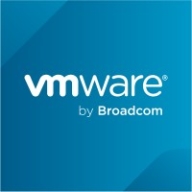

vCenter Configuration Manager and Microsoft Intune compete in the IT infrastructure management and device management sectors. Microsoft Intune seems to have the upper hand due to its seamless integration with Microsoft 365 and cloud-centric deployment, which offers faster setup and integration for businesses within a Microsoft ecosystem.
Features: vCenter Configuration Manager provides live migration, hyper-converged infrastructure support, and automation, making it suitable for complex IT environments. It includes robust disaster recovery and business connectivity features. Microsoft Intune offers seamless Microsoft 365 integration, mobile device management, and zero-touch deployment for Windows, which is beneficial for Microsoft-centric enterprises.
Room for Improvement: vCenter Configuration Manager could improve error reporting, automation capabilities, support documentation, and cloud environment integration. Microsoft Intune should enhance reporting, Linux and macOS support, and user interface simplicity, alongside better patch management and synchronization speed for updates.
Ease of Deployment and Customer Service: vCenter Configuration Manager has a longer on-premises setup process compared to Microsoft Intune's cloud-centric deployment that offers quicker setup, especially for Microsoft products. Customer service for vCenter receives mixed reviews with slower response times, whereas Microsoft Intune benefits from extensive cloud-based support but needs improvements in advanced troubleshooting support.
Pricing and ROI: vCenter Configuration Manager's high license costs make it less accessible for mid-sized businesses, although it offers significant ROI in resource savings for large environments. Microsoft Intune is competitively priced within Microsoft bundles, providing a cost-effective option for small and medium businesses when integrated with other Microsoft services.
| Product | Market Share (%) |
|---|---|
| Microsoft Intune | 8.7% |
| vCenter Configuration Manager | 1.3% |
| Other | 90.0% |


| Company Size | Count |
|---|---|
| Small Business | 117 |
| Midsize Enterprise | 46 |
| Large Enterprise | 152 |
| Company Size | Count |
|---|---|
| Small Business | 26 |
| Midsize Enterprise | 11 |
| Large Enterprise | 19 |
Microsoft Intune provides centralized management of mobile devices and applications, ensuring security, compliance, and productivity through integration with Microsoft services like Microsoft 365 and Azure Active Directory.
Organizations use Intune for managing mobile devices and applications, enhancing security and compliance across platforms. With features like single sign-on, conditional access, and zero-touch deployment via Autopilot, it facilitates efficient operations. Intune's scalability, easy enrollment, and capabilities such as remote wipe support diverse device management, offering robust data protection and efficient operation. Despite its features, improvement areas include reporting, compatibility with non-Microsoft devices, and better support for macOS and Linux devices.
What are the key features of Microsoft Intune?
What benefits should users look for in reviews?
In industries such as finance, healthcare, and education, Microsoft Intune is implemented to ensure secure and compliant device management. Companies leverage its capabilities to deploy security policies and manage both corporate-owned and BYOD environments, facilitating a unified approach to data protection and compliance.
vCenter Configuration Manager is a powerful configuration management tool that is designed to enable organizations to ensure that any environment that they use to conduct business is configured in the most effective possible way. It can automate configurations consistently across virtual, physical, and cloud environments. Additionally, it enables users to place critical functions into the hands of the solution thereby avoiding the possibility that human error will reduce a business’s operations. It also hardens operations against bad actors who look for holes in a user’s security compliance policies that they can exploit.
vCenter Configuration Manager Benefits
Some of the ways that organizations can benefit by choosing to deploy vCenter Configuration Manager include:
vCenter Configuration Manager Features
Reviews from Real Users
vCenter Configuration Manager is a highly effective solution that stands out when compared to many of its competitors. Two major advantages it offers are its intuitive and simple design and its ability to scale according to the needs of its user.
Moses S., a project manager at Swakop Uranium, writes, “The platform is straightforward and user-friendly. A large knowledge base is not required to begin using it.”
Raju P., an Information Technology manager at Sikraft, says, “We can scale the solution as needed.”
We monitor all Configuration Management reviews to prevent fraudulent reviews and keep review quality high. We do not post reviews by company employees or direct competitors. We validate each review for authenticity via cross-reference with LinkedIn, and personal follow-up with the reviewer when necessary.